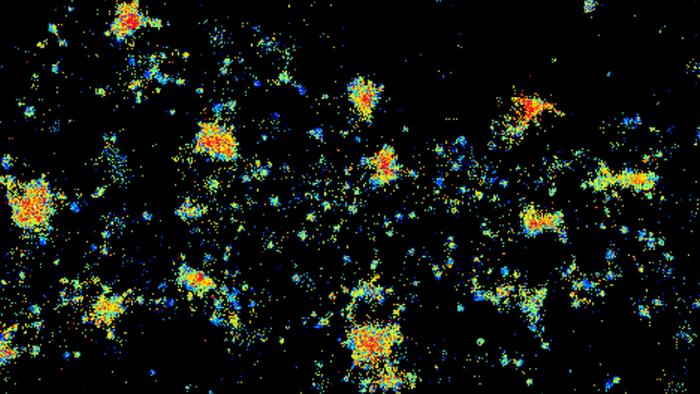Autoimmune encephalitis, a condition causing seizures, cognitive dysfunction, and psychosis, has long puzzled scientists due to its complex interactions with brain receptors. Now, researchers at Cold Spring Harbor Laboratory (CSHL) have provided a breakthrough in understanding how autoantibodies bind to N-methyl-D-aspartate receptors (NMDARs) in the brain, significantly disrupting their function.
Summary: New research reveals how patient-derived antibodies affect NMDA receptors in the brain, potentially paving the way for personalized treatments for autoimmune encephalitis.
Estimated reading time: 5 minutes
The Role of NMDA Receptors in Autoimmune Encephalitis
Anti-NMDAR encephalitis primarily affects women between the ages of 25 and 35, often leading to symptoms that resemble schizophrenia, including hallucinations and paranoia. As Cold Spring Harbor Laboratory Professor Hiro Furukawa explains, “In anti-NMDAR encephalitis, antibodies bind to those receptors and prevent them from working.” This autoimmune attack leads to brain inflammation, triggering severe neurological symptoms.
The study, published in Nature Structural & Molecular Biology, used advanced electron cryo-microscopy to map how antibodies from three patients bound to NMDARs. The results showed that these antibodies attach to different regions within the receptor, each one altering the receptor’s function in unique ways.
Personalized Medicine: The Future of Autoimmune Encephalitis Treatment?
The research findings suggest that personalized medicine could play a vital role in treating anti-NMDAR encephalitis. “Distinct binding patterns manifest in different functional regulation levels in NMDARs,” Furukawa explains. These differences can lead to a range of symptoms, from mild cognitive issues to severe psychosis, depending on how the antibodies disrupt brain activity.
Uncovering how specific antibodies interact with the receptor could allow for more targeted therapies. For instance, pharmacologists could develop drugs that focus on particular binding sites identified in encephalitis patients, providing more precise treatments. Furukawa also notes that personalized medicine could improve diagnosis, especially for cases of encephalitis misdiagnosed as psychiatric conditions.
“It’s still a rare disease, but it could be misdiagnosed or underdiagnosed,” Furukawa says. “Could, for example, some schizophrenic patients have this disease? Could it be caused by antibodies?”
The research emphasizes the need for greater awareness of anti-NMDAR encephalitis, which currently affects an estimated one in 1.5 million people. As knowledge about the disease grows, it may turn out to be more common than previously thought, potentially offering new hope to those misdiagnosed with psychiatric disorders.
What’s Next for Anti-NMDAR Encephalitis?
As scientists continue to map the antibody binding patterns, they are opening doors to not only better treatments but also better understanding of how autoimmune responses can influence mental health. The findings could revolutionize how doctors approach not just encephalitis but also conditions like bipolar disorder, where autoimmune causes might be overlooked.
While treatments for anti-NMDAR encephalitis exist, their effectiveness varies widely, depending on how severely the antibodies impact brain receptors. The latest research provides a critical stepping stone toward more effective, individualized therapies for patients battling this rare yet devastating condition.
Quiz:
- What role do NMDA receptors play in autoimmune encephalitis?
- How do antibodies affect NMDA receptors in anti-NMDAR encephalitis patients?
- What is the potential significance of personalized medicine in treating anti-NMDAR encephalitis?
Answer Key:
- They are brain receptors involved in cognition and memory that, when affected, contribute to neurological symptoms like seizures and psychosis.
- Antibodies bind to the receptors and prevent them from functioning properly, disrupting brain activity.
- Personalized medicine could lead to more precise treatments based on individual antibody binding patterns.
Glossary of Terms:
- NMDAR (N-methyl-D-aspartate receptor): A receptor in the brain involved in synaptic plasticity and memory function.
- Autoantibodies: Antibodies that mistakenly target and react with a person’s own tissues or organs.
- Encephalitis: Inflammation of the brain, often due to infection or autoimmune conditions.
- Electron Cryo-Microscopy: A technique that allows scientists to observe molecular structures at near-atomic resolution.
- Personalized Medicine: Medical care tailored to the individual characteristics of each patient.
- Schizophrenia: A mental disorder characterized by hallucinations, delusions, and impaired cognitive function.
Enjoy this story? Get our newsletter! https://scienceblog.substack.com/


